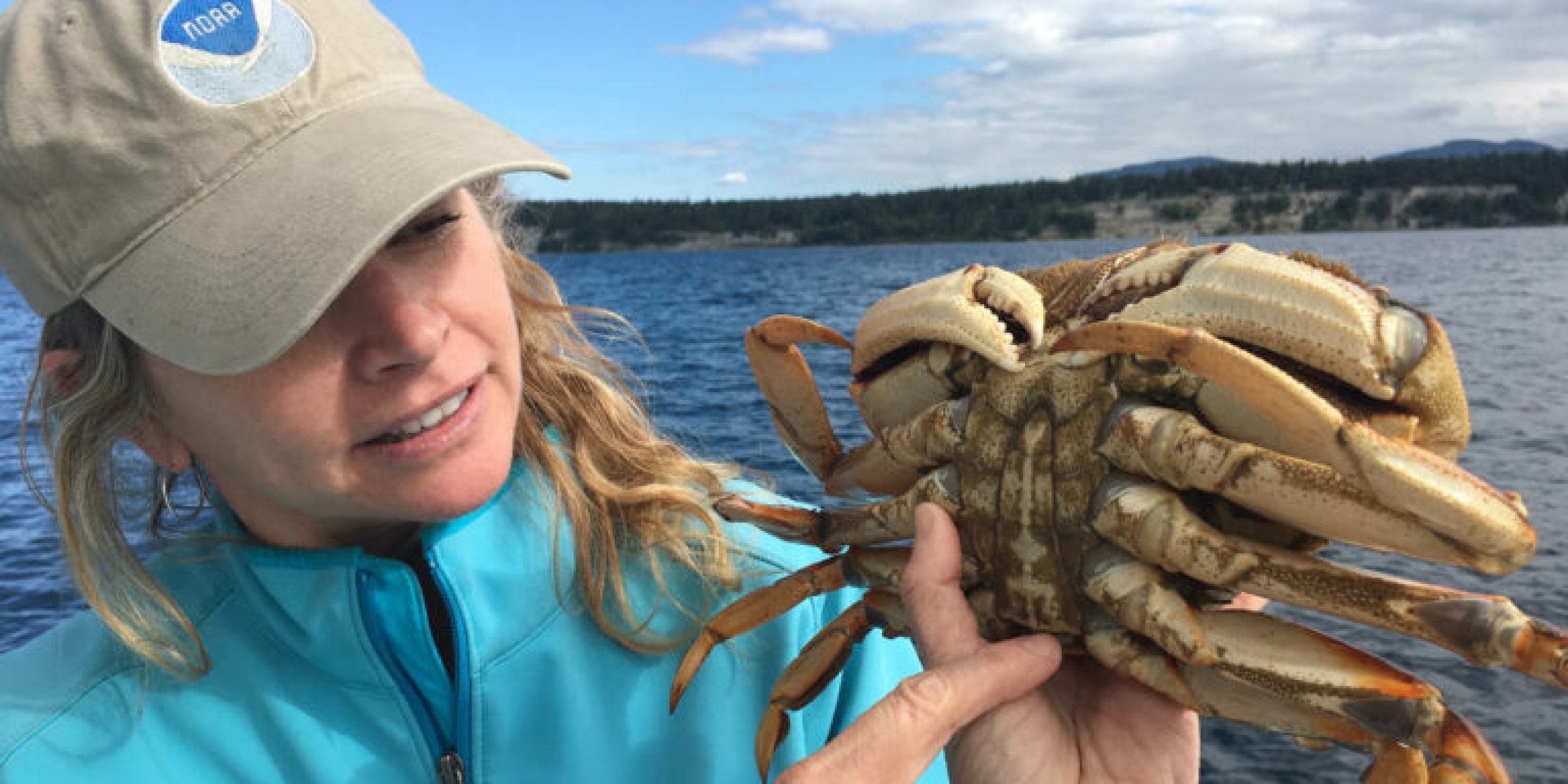Credit: Olympic Coast National Marine Sanctuary
NOAA cross-program investment supports climate change readiness for the Dungeness crab fishery, the most valuable fishery in the U.S. West coast. NOAA’s Ocean Acidification Program (OAP), Climate Program Office (CPO), National Centers for Coastal Ocean Science (NCCOS), and the U.S. Integrated Ocean Observing System Office (IOOS), in partnership with Office of National Marine Sanctuaries (ONMS), are providing $4.2M over four years to better understand multi-stressor impacts on marine ecosystems under climate change. Cross-program coordination between OAP, NCCOS, CPO, IOOS, and ONMS allows the development of climate readiness for the Dungeness crab fishery in northern California, Oregon, and Washington, including NOAA’s Olympic Coast National Marine Sanctuary.
CPO’s Modeling, Analysis, Predictions and Projections (MAPP) Program collaborated on this award effort and contributes to the cross-CPO Marine Ecosystem Risk Team (MERT), which seeks to address select climate risk challenges through holistic, interdisciplinary approaches and collaborations that produce usable and actionable science to support and inform decision making, reduce risk, and build resilience to climate-related hazards. Towards this goal, MERT aims to provide climate research and modeling to reinforce and expand the application of climate science in national marine sanctuaries, and ultimately improve long-term planning and management of the National Marine Sanctuary System in support of NOAA’s stewardship mission.
The goal of the proposed work, led by NOAA’s Pacific Marine Environmental Laboratory and Oregon State University, is to help resource managers and tribes of the northern California Current Ecosystem prepare for future climate change. A team of 18 scientists across eight institutions will help determine biological sensitivity to co-occurring ocean acidification, hypoxia, increasing temperatures, and harmful algal blooms in the northern California Current Ecosystem. Along with data synthesis, modeling, and experimental approaches, the project will rely on Traditional Ecological Knowledge to incorporate multiple generations of understanding of this environment and its fisheries.
Read the National Centers for Coastal Ocean Science news item »
Read the National Marine Sanctuaries webstory »



